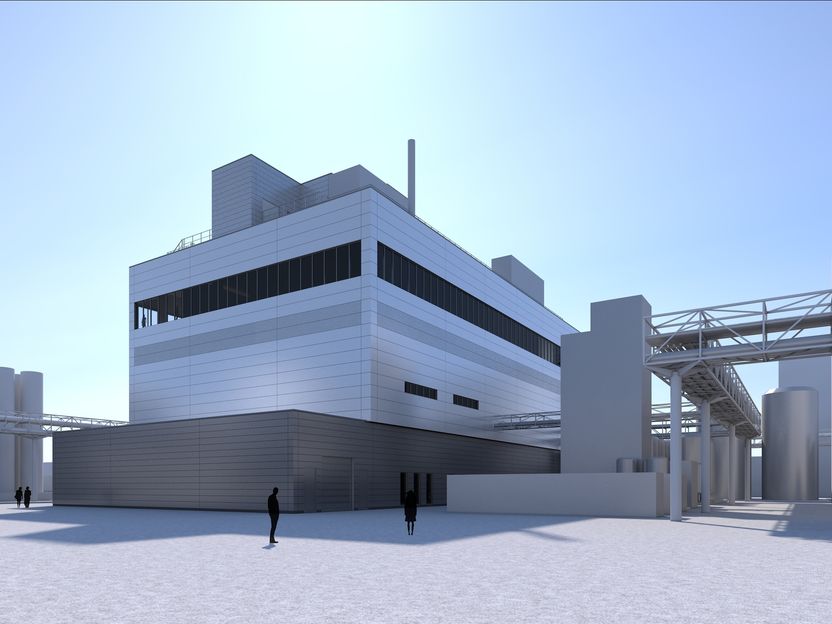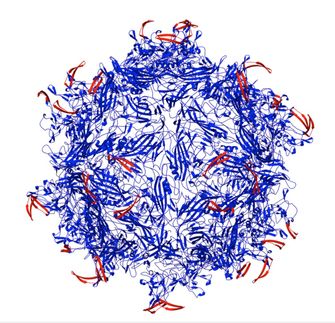Abbott Reports Psoriasis Phase III Results of its Investigational IL-12/23 Inhibitor Briakinumab (ABT-874)
Data Compares Briakinumab (ABT-874) to Etanercept, Methotrexate and Placebo in Psoriasis
In four separate pivotal clinical studies presented on Friday, a greater percentage of moderate to severe chronic plaque psoriasis patients treated with briakinumab, Abbott's investigational IL-12/23 inhibitor (ABT-874), achieved 75 percent or better skin clearance rates than those treated with etanercept (Enbrel®), methotrexate or placebo. Abbott presented data from all briakinumab pivotal studies in psoriasis at the European Association of dermatology and Venereology scientific sessions.
Briakinumab is an investigational biologic medication that targets IL-12/23 proteins linked to inflammation. Briakinumab is the second medication in the IL-12/23 class to have completed Phase III trials for the treatment of plaque psoriasis. The most commonly prescribed biologics used to treat moderate to severe chronic plaque psoriasis target a protein called tumor necrosis factor (TNF).
"While anti-TNFs are the cornerstone of biologic treatment for psoriasis, these data suggest that briakinumab may be evaluated as a potentially important alternative treatment option for some psoriasis patients," said Eugene Sun, M.D., vice president, Global Pharmaceutical Development, Abbott.
In the largest of the four studies, a 52-week study comparing briakinumab (N=981) to placebo (N=484), significantly more patients experienced skin clearance versus patients with placebo. At week 12, skin clearance of 75 percent (PASI 75) was achieved in 80.7 percent of patients receiving briakinumab every four weeks versus 4.5 percent with placebo. Skin clearance of 90 percent (PASI 90) was achieved in 61.6 percent on briakinumab versus 1.4 percent on placebo, and 100 percent skin clearance (PASI 100), was achieved in 32.2 percent of patients versus no placebo patients. Of the 290 briakinumab patients that achieved PASI 75 and Physician's Global Assessment (PGA) of clear or normal at week 12, 82.4 percent maintained PASI 75 at week 52, versus 9.0 percent of the 144 patients on placebo.
Of the 243 briakinumab patients that achieved PASI 90 and PGA of clear or normal at week 12, 81.5 percent maintained PASI 90 at week 52, versus 9.2 percent of the 109 placebo patients. Of the 298 briakinumab patients who achieved PGA of clear or normal at week 12, 63.4 percent of patients demonstrated PASI 100 at week 52, versus 4 percent of the 149 placebo patients.
The most common adverse events observed across all four briakinumab pivotal studies and the ongoing open-label extension were upper respiratory infection, nasopharyngitis (stuffy nose), headache, arthralgia (joint pain), hypertension and back pain. The incidences of infection and malignancy with briakinumab were generally higher than those with placebo, but were similar to those in patients treated with etanercept or methotrexate. Because briakinumab is a modulator of the immune system, these results are not unexpected and emphasize the need for close monitoring and surveillance. Major adverse cardiovascular events (MACE) including myocardial infarction, stroke and cardiovascular death were observed in one of the four briakinumab pivotal studies and in the ongoing open-label extension. An analysis of the data showed that all patients experiencing MACE in the pivotal briakinumab study had identifiable underlying cardiovascular risk factors.
Most read news
Other news from the department research and development

Get the life science industry in your inbox
By submitting this form you agree that LUMITOS AG will send you the newsletter(s) selected above by email. Your data will not be passed on to third parties. Your data will be stored and processed in accordance with our data protection regulations. LUMITOS may contact you by email for the purpose of advertising or market and opinion surveys. You can revoke your consent at any time without giving reasons to LUMITOS AG, Ernst-Augustin-Str. 2, 12489 Berlin, Germany or by e-mail at revoke@lumitos.com with effect for the future. In addition, each email contains a link to unsubscribe from the corresponding newsletter.
Most read news
More news from our other portals
Last viewed contents

Turning fallen leaves into sustainably made paper - Ukrainian scientist selected as a finalist for the Young Inventors Prize 2024

Merck Celebrates Topping-Out Ceremony for New Membrane Production Plant - Investment of more than € 140 million creates approximately 55 new jobs






















































